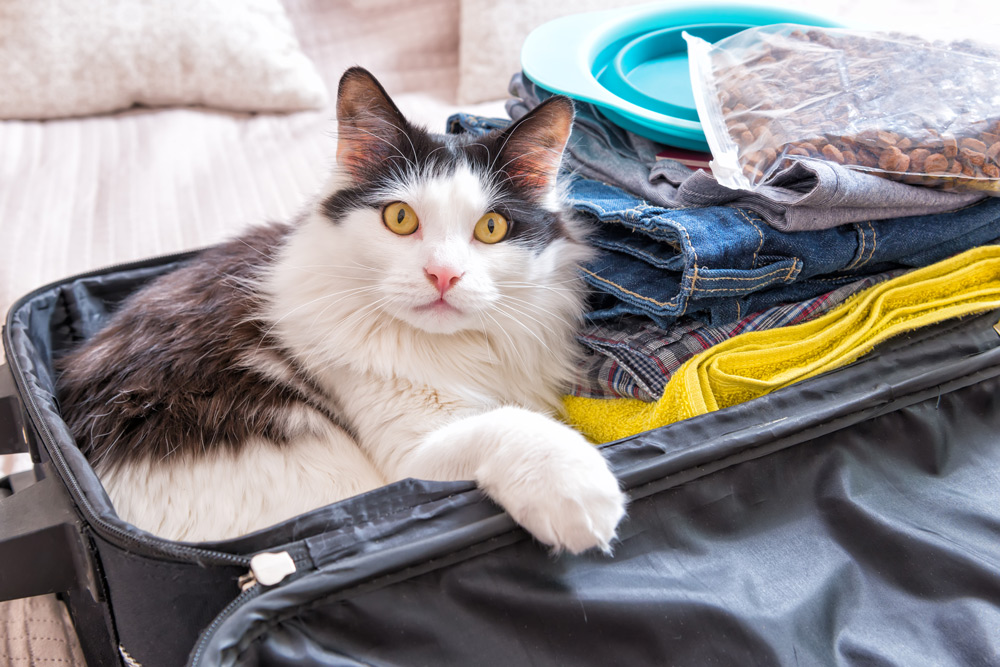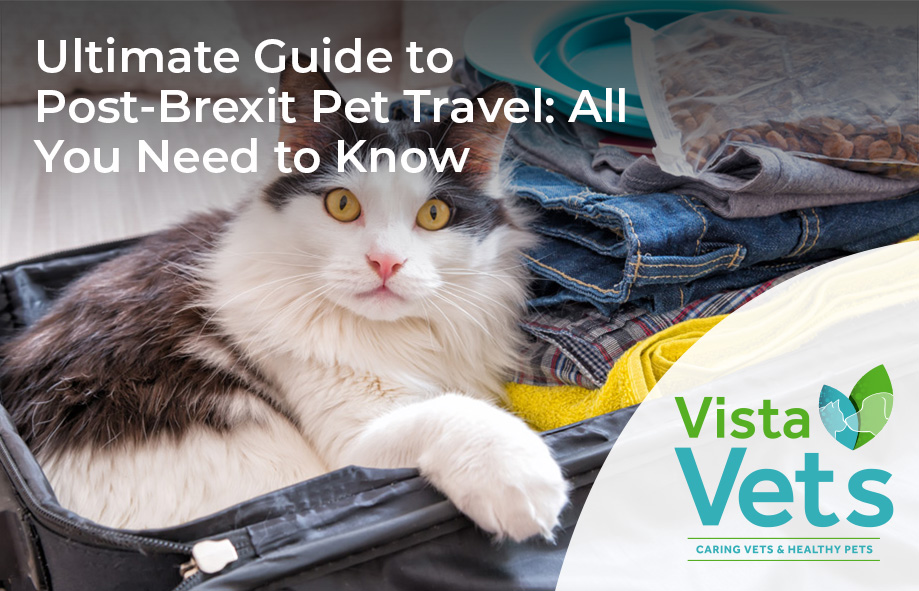As the UK has now left the European Union rules on pet travel changed on 1st January 2021. Pet Passports have been replaced by Animal Health Certificates (AHC’s) that are valid for a single trip. We can arrange this for you.
You can still travel within the EU if you have a valid Pet Passport, but it needs to have been issued in an EU country (not England, Wales or Scotland) and these countries are listed at the bottom of this blog.
If you reside in the UK and wish to travel, there are different rules for EU and non-EU countries.
When travelling to an EU country your dog, cat or ferret needs:
- To be over 15 weeks of age. This includes the 12 weeks it takes to be old enough to get their vaccinations and a 21 day wait afterwards to allow the vaccine to take effect
- Microchip
- Rabies vaccination (If your pet has an up-to-date rabies vaccination history following your first AHC, they will not need a repeat rabies vaccination before travelling to the EU or NI
- Tapeworm treatment for dogs if you’re travelling directly to Finland, Ireland, Northern Ireland, Norway or Malta given one to five days before travel.
- Animal Health Certificate (you’ll need to bring proof of the above to your AHC appointment) issued within 10 days of the date you will be travelling. This is valid for up to four months of travel but expires after one trip. We can help clarify what you will need
When travelling to a non-EU country:
- You’ll need to get an export health certificate (EHC). This checks that your pet meets the health requirements of the country you’re travelling to.
- You’ll also need to complete an export application form (EXA) if you’re in England, Scotland or Wales.
Important!
Check the rules of the country you’re travelling to for any additional restrictions or requirements before you travel. For example, some countries have parasites or diseases that are different to ours and your pet might need additional protection from these such as poisonous snakes, ticks, mosquitos, and sand flies which can spread disease.
There are also other environmental threats that you might want to be aware of, such as hot pavements that might blister paws that aren’t used to it.
Laws on dog ownership might also be different so it’s worth researching this. For example, in Italy, all dogs must be muzzled whilst out, so you should get them used to this in advance of your trip so it’s not too unsettling for them.

Do these rules apply to assistance dogs?
Slightly different rules apply to assistance dogs whilst normally you would need to travel an approved route, you don’t need to with an assistance dog. You will just need to tell the authorities that you’re travelling with an assistance dog to make sure the appropriate checks are carried out.
How many pets can I travel with?
You can travel with up to five pets to and from GB. The only exceptions to this rule are if you’re taking part or training:
- In a competition
- In a show
- In a sporting event
If they are in the above, you must bring written evidence of your participation in the event with you to the Travellers’ Point of Entry. Your pet will need to be over six months old, be actively taking part in the event or training and must meet all the other requirements needed to enter that country.
EU countries are:
Austria, Belgium, Bulgaria, Croatia, Republic of Cyprus, Czech Republic, Denmark, Estonia, Finland, France, Germany, Greece, Hungary, Ireland, Italy, Latvia, Lithuania, Luxembourg, Malta, Netherlands, Poland, Portugal, Romania, Slovakia, Slovenia, Spain, Sweden
Pet passports are also accepted from:
Andorra, Faroe Islands, Gibraltar, Greenland, Iceland, Liechtenstein, Monaco, Northern Ireland, Norway, San Marino, Switzerland, Vatican City State


